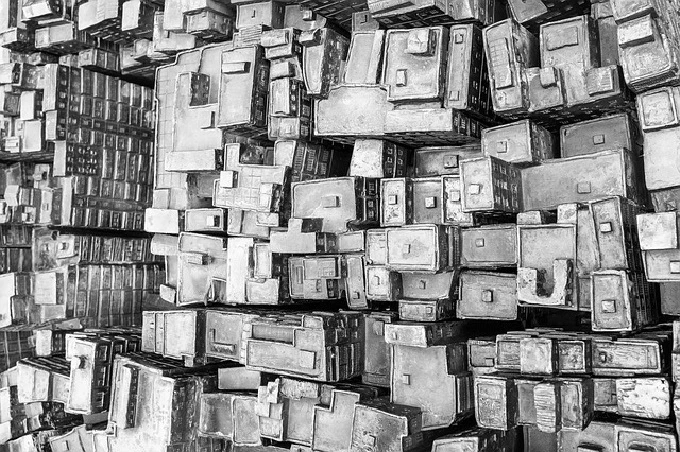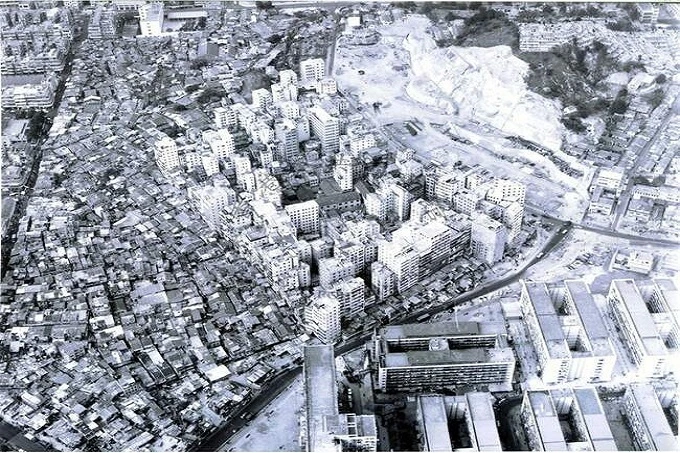There are times when the political climate or historical context leads peculiar phenomena or locations into existence. This is precisely what occurred with the fortress city on the Kowloon Peninsula, which transformed from a typical Chinese military fort into the most populous city on the face of the earth during its history. And even though this location has been gone for more than a quarter of a century, it still deserves mention because of its unique history.
At the close of the first millennium, a fortification was constructed on the Kowloon Peninsula. This was the beginning of the story of this unique location. It merely occupies a space that is 126 meters wide and 213 meters long. And for a good number of years, this status remained unchanged until the convention on the expansion of the territory of Hong Kong was signed between the Chinese and the British on June 9, 1898. This convention fixed the transition of the island into the control of Great Britain for a period of 99 years. According to the conditions of the agreement, the Kowloon Fort and its population of 700 people were to continue to fall under China’s sphere of control. At the same time, the rest of the territory remained under British control.

Since then, the population of Kowloon Walled City began to grow rapidly because the city, although formally remaining Chinese territory, the Chinese authorities did not remember it. In particular, the inhabitants of Kowloon did not pay taxes – Hong Kong did not have the right to collect them, and China was far away, so the city only became more attractive for moving. There were no problems with opening a business here: private shops or offices for providing various types of services appeared quickly, and affordable prices attracted local customers and Hong Kong residents.
However, because there were no regulating authorities in place at the time, criminal activity and other types of illegal companies were able to develop in Kowloon. This was one of the consequences of the circumstances described above. In addition, at one point in time, criminal organizations held real authority, and they extended their influence sphere well beyond the boundaries of the tiny town.
An unprecedented population influx demanded the emergence of new living spaces, but the boundaries did not expand. Therefore, at first, the space between the old houses was built, and later the buildings began adding floors. Moreover, only aviation managed to stop this process: it was simply impossible to build higher buildings because planes were already taking off or landing at Kai Tak Airport, located nearby. But there was not enough sunlight in the city: it simply did not penetrate through the dense high buildings. There was no place in the city for leisure and even normal walks, so the locals adapted such zones right on the roofs of their houses.
People live in confined spaces frequently subdivided between a living area and a working area, such as a shop or a workshop. The number of structures that have been constructed is estimated to be five hundred. Because of this circumstance, this land area has the highest population density anywhere on the entire planet. The water supply in Kowloon was restricted to wells; water was pulled out of the wells using electric pumps. Daily life in Kowloon was not an easy one. At the same time, electricity was illegally delivered directly to the city through artisanal connections to the electrical grids of Hong Kong.
It goes without saying that such a city in the realities of the 20th century could not exist for a long time; therefore, as soon as the agreement between Great Britain and China ceased to operate, the fate of Kowloon as an extremely problematic city was decided. So, officially the demolition of the building began in March 1993; just a year later, nothing remained of the dense building, and the residents were moved to new houses.
However, the history of this one-of-a-kind location was not forgotten: in December 1995, the Kowloon Walled City Park was opened, which included the former territory of a built-up fortress as well as the only historical building in Kowloon, Yamen, which is an administrative building that was erected in the middle of the century before the one in which it is located. And if you look at the surviving images and the layout, which can be found in the same park, you can get an idea of what it was like to live in the area with the highest population density.
